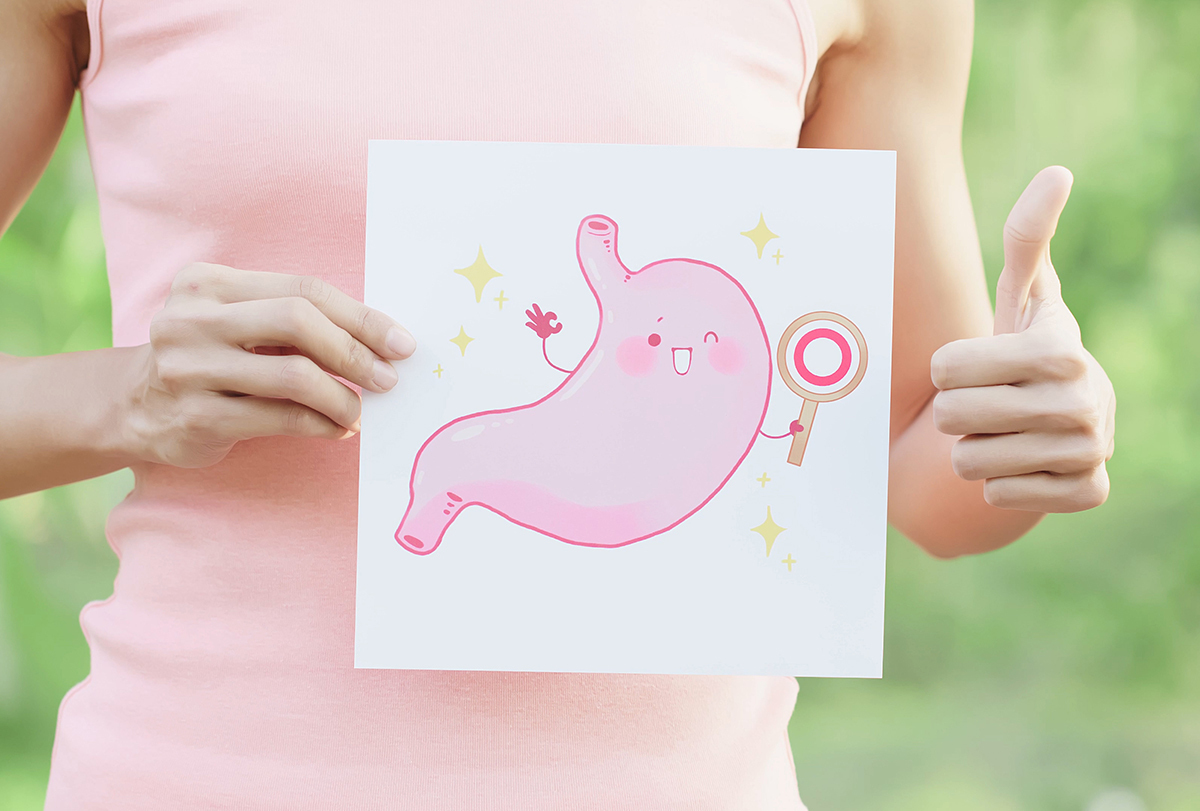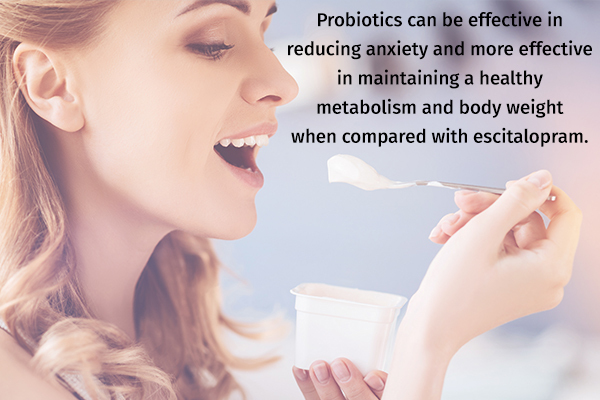In this article:
The gut-brain connection (aka the gut-brain axis) refers to the neurohumoral (nerve and hormonal) pathways between the brain and gastrointestinal tract, which allow the gut to communicate with the brain and vice versa. This essentially means that your state of mind can affect your gut function, and vice versa. (1)

Thus, any form of mental distress such as tension, nervousness, anxiety, anger, or sadness can trigger digestive problems. Similarly, an upset stomach can trigger stress, anxiety, or depression. (2)
These connections exist via the autonomic nervous system and the hypothalamic-pituitary-adrenal axis. The intestinal tract is the interface between the body and environment and is modified by eating, the gut microbiome, inflammation, and drugs, in addition to many other factors. (3)
The brain, through the hypothalamic-pituitary-adrenal axis and the autonomic nervous system, can affect gut function in response to stress.
The enteric nervous system (nervous system of the gut) is made up of 200–600 million neurons (nerve cells), which is equivalent to the number of neurons in the spinal cord. (4) Thus, the enteric nervous system is oftentimes referred to as the “second brain.”
Symptoms and Factors Associated With the Gut-Brain Axis
The brain-gut axis is likely involved in a number of diseases including irritable bowel syndrome, inflammatory bowel disease, anxiety, depression, schizophrenia, and autism, to name a few. (1)
Research is ongoing. In the future, manipulating the gut microbiome may be one way to modulate these disease states. Because data is lacking regarding the optimal gut microbiome, recommendations regarding the “best diet” cannot be made.
The composition of the gut microbiome in healthy individuals is also variable from person to person. The response of individuals to a change in the gut microbiome may also vary.
Minimizing intake of processed foods is a recommendation that would benefit overall health as would an active lifestyle and high-fiber diet. All of these factors may have a favorable effect on the gut microbiome.
Treatment and Tips for Optimum Brain-Gut Health
The brain-gut connection influences many aspects of your health. Thus, it is imperative to take steps to maintain its integrity.
1. Control your stress levels

Stress management is very important for maintaining a healthy gut equilibrium and proper digestive function. (5)
Stress is an inalienable part of life, but there are things you can do to minimize or manage it. Try your best to actively avoid situations that disrupt your mental peace, although sometimes these situations are beyond your control.
Here are some effective ways to combat psychological distress to preserve your mental peace:
a. Relaxation techniques
Take some time out from your daily schedule to practice some relaxation techniques such as yoga, deep meditative breathing, tai chi, and other activities that calm your mind.
b. Cognitive behavioral therapy (CBT)
CBT is a popular form of psychotherapy wherein a mental health counselor talks one on one with the patient to identify their problematic thought and behavior patterns and then recommends ways to overcome them.
The CBT therapist will suggest healthy behavioral changes to deal with a wide array of mental health issues, such as panic or anxiety disorders, depression, alcoholism, drug abuse, marital discord, and eating disorders, among others. (5)
c. Progressive muscle relaxation (PMR)
PMR is an exercise specifically designed to relieve the stress and anxiety pent up inside your body.
Your muscles hold a lot of tension that needs to be released for your body to relax. And this exercise works on the principle that you are unlikely to suffer anxiety when your body is truly relaxed. In other words, physical well-being helps foster mental well-being.
This exercise involves gradually tightening and then relaxing each muscle. (6)
2. Exercise regularly

Staying active helps keep your mental and gastrointestinal health in order. It facilitates smooth digestion and promotes the balance of healthy gut bacteria. It is also a great stress buster.
So, do some form of exercise on a regular basis to improve your gut function, mental well-being, and overall health. (7)
3. Limit antibiotics
Antibiotics can destroy healthy gut bacteria and lead to digestive distress, which is a common side effect of this medication. So, take them only when absolutely necessary and in the dosage prescribed by your doctor.
Reliance on antibiotics for the most minor ailment can disrupt the diversity of your microbiome. (8)
Beneficial Foods for the Gut-Brain Connection
The following types of food can support the growth of healthy microbes in the gut and improve brain health.
Probiotics

The administration of probiotics is a way to manipulate the gut microbiome.
In one study, healthy volunteers without a prior history of depression were given probiotics, and they showed a reduction in stress hormone levels (9) and improved psychological parameters. These results were similar to those of patients receiving diazepam (an anti-anxiety medication).
An animal study compared the antidepressant escitalopram to probiotics in mice and showed similar effects. (10)
Probiotics were equally effective in reducing anxiety and more effective in maintaining a healthy metabolism and body weight when compared with escitalopram. These preliminary results are intriguing and support the importance of the brain-gut connection in disease, but much is yet to be learned before this information is clinically applicable. (11)
Prebiotics
Prebiotics are basically dietary fibers that serve as fodder for healthy gut microbes. Thus, adding them to your diet will help improve your gut health and thereby your mental health. (12)
Some of the other most important prebiotics are: (13)
- Food rich in omega-3 fatty acids, such as fish, walnuts, flaxseeds, and garlic
- Fermented foods, such as yogurt, kimchi, kefir, and sauerkraut
- Fibrous foods, such as lentils, beans, whole grains, and broccoli
- Foods rich in polyphenols, such as apricot, apple, olives, and spinach
- Foods rich in tryptophan, such as milk, seeds and nuts, oats, and chicken
Final Word
Your gut health and brain health are interlinked through various physical and biochemical systems that allow the two organs to communicate with one another.
What this implies is that problems with either of these organs will have a bearing on the function of the other. So, it is important to look after both if you wish to ensure optimum mental health and proper digestive functioning.
- Was this article helpful?
- YES, THANKS!NOT REALLY


